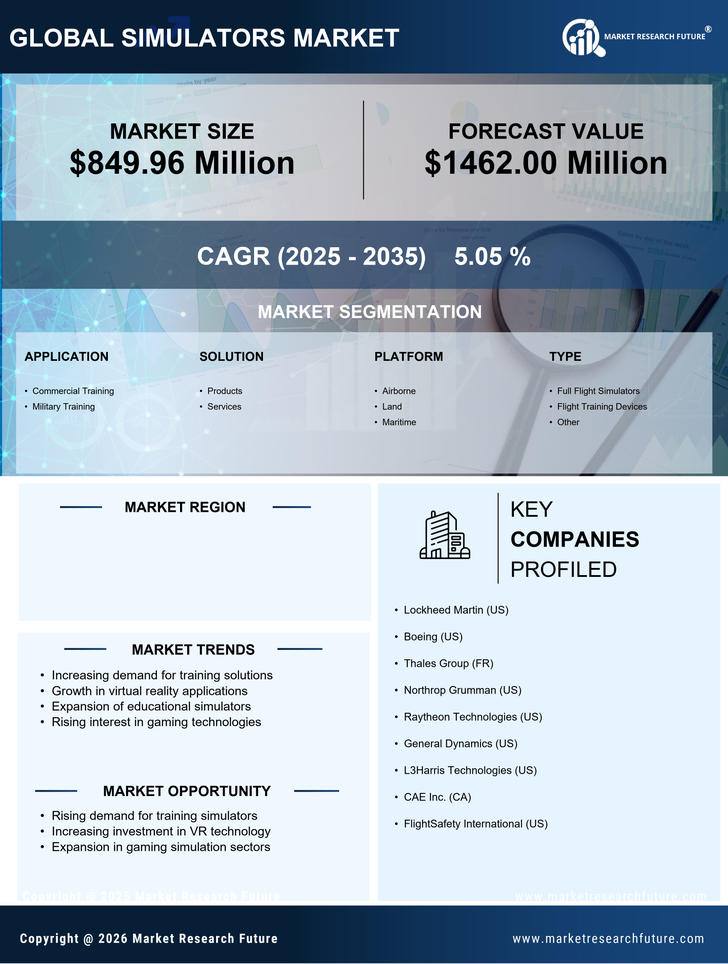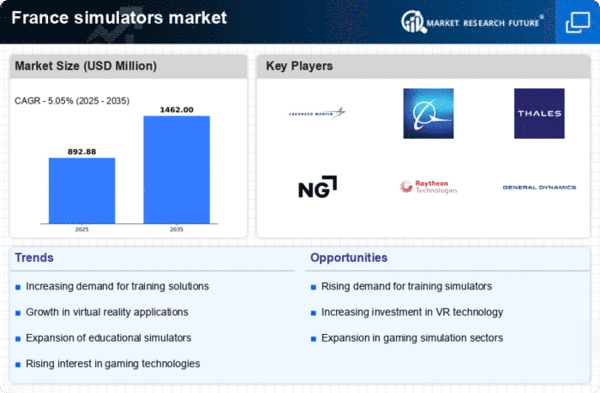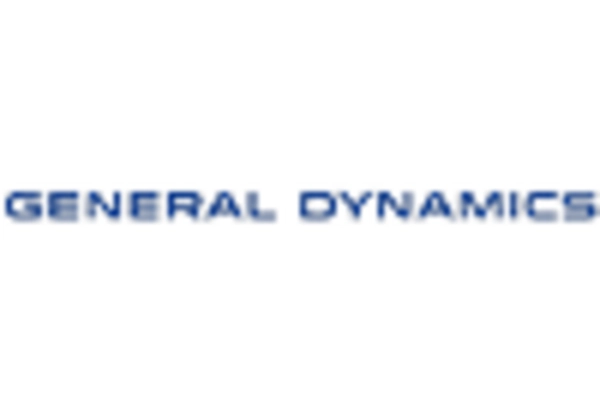Rising Adoption of Simulation in Healthcare
The healthcare sector's growing reliance on simulation technologies is a notable driver for the simulators market. In France, medical institutions are increasingly utilizing simulation for training healthcare professionals, enhancing both skills and patient safety. The market for healthcare simulation is projected to grow at a CAGR of 10% over the next five years. This growth is fueled by the need for effective training solutions that can replicate clinical scenarios without risk to patients. Furthermore, the integration of advanced technologies such as virtual reality is enhancing the realism of medical simulations. As healthcare providers continue to prioritize training and education, the simulators market is likely to expand in response to these evolving needs.
Growing Demand for Remote Training Solutions
The shift towards remote training solutions is significantly impacting the simulators market. In France, organizations are increasingly adopting remote training methodologies to ensure continuity and flexibility in learning. This trend is particularly evident in sectors such as education and corporate training, where the need for effective remote learning tools has surged. The simulators market is expected to see a rise in demand for virtual training environments that can replicate real-world scenarios. According to recent estimates, the remote training segment is anticipated to account for approximately 30% of the overall market by 2026. This shift not only enhances accessibility but also reduces training costs, making it a compelling option for many organizations.
Increased Investment in Defense and Aerospace
The defense and aerospace sectors are witnessing heightened investment, which serves as a significant driver for the simulators market. In France, government initiatives aimed at bolstering national security and technological capabilities are leading to increased funding for military training programs. The French defense budget has seen a rise of approximately 5% in recent years, with a substantial portion allocated to simulation technologies. This investment is crucial for developing advanced training systems that can simulate complex combat scenarios. As a result, the simulators market is likely to experience robust growth, driven by the demand for high-fidelity training solutions that enhance operational readiness and effectiveness.
Focus on Skill Development and Workforce Training
The emphasis on skill development and workforce training is reshaping the simulators market landscape. In France, industries are increasingly recognizing the importance of continuous training to maintain competitiveness. This has led to a surge in demand for simulation-based training programs that facilitate hands-on learning experiences. The simulators market is expected to grow as organizations invest in training solutions that enhance employee skills and productivity. Recent surveys indicate that approximately 70% of companies in France are prioritizing training initiatives, with a significant portion of their budgets allocated to simulation technologies. This focus on workforce development is likely to drive innovation and expansion within the market.
Technological Advancements in Simulation Software
The rapid evolution of simulation software is a key driver in the simulators market. Innovations in artificial intelligence and machine learning are enhancing the realism and interactivity of simulations. In France, the market for simulation software is projected to grow at a CAGR of 12% from 2025 to 2030. This growth is attributed to the increasing demand for sophisticated training tools across various sectors, including aviation, healthcare, and military. As organizations seek to improve training outcomes and operational efficiency, the simulators market is likely to benefit from these advancements. Furthermore, the integration of cloud computing allows for more accessible and scalable simulation solutions, which could further drive market expansion in France.

















